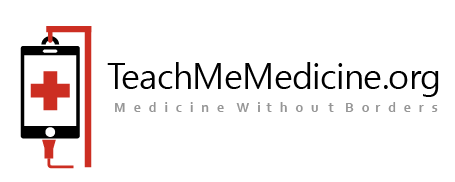Ophthalmology
Coursework and clinical shall include the following sub-sections: a study of eye examination protocols; the diagnosis of ophthalmologic disorders and diseases and treatments, surgical and non-surgical. Students shall be exposed to sub-specialties in cornea, retina, oculoplastics, glaucoma, neuro-ophthalmology, and pediatric vision disorders. Students will learn how to perform and interpret normal eye examinations and tests for eye disorders and diseases including macular degeneration retinal detachment, cataracts, and glaucoma. Students will also be able to identify vision changes due to neuropathy, hypertension, age, and diabetes. Students will determine appropriate treatment protocols for a variety of disorders and diseases.
Eye Anatomy and Physiology
Ophthalmoscopy
Normal & Abnormal Pupils
Retina & Vitreous
Dry Eyes
Impaired Vision
Sudden loss of Vision
Eye Infections
General Ophthalmology
Pediatric Eye Evaluation
The Human Eye
Overview of Anatomy and Physiology of the Eye
Embryology of the Eye and Visual Pathways
Optics of the Human Eye
Clinical Refraction
Eye Examination I
Eye Examination II
Loss of Vision I
Loss of Vision II
Loss of Vision III
Loss of Vision IV
Visual Loss in Elderly
Conjunctivitis I
Conjunctivitis II
Conjunctivitis III
Conjunctivitis IV
Watery Eyes I
Watery Eyes II
Dry Eyes I
Dry Eyes II
Dry Eyes III
Eye movement disorders I
Eye movement disorders II
Loupe: A Handheld Near-Eye Display
Slit Lamp Exam I
Slit Lamp Exam II
Slit Lamp Exam III
Slit Lamp Exam IV
Slit Lamp Exam V
Slit Lamp Exam VI
Direct Ophthalmoscope Exam I
Direct Ophthalmoscope Exam II
Direct Ophthalmoscope Exam III
Indirect Ophthalmoscope Exam I
Indirect Ophthalmoscope Exam II
Light and Dark Adaptation
Human Color Vision
Visual Processing
Visual Field Basics
Visual Field Testing and Perimetry I
Visual Field Testing and Perimetry II
Automated Perimetry
The Electroretinogram and Electro-oculogram
Visual Acuity I
Visual Acuity II
Visual Acuity III
Visual Acuity IV
Pupils I
Pupils II
Fluorescein Angiography I
Fluorescein Angiography I
Fluorescein Angiography II
Ophthalmology and Eye Disease
Retinal Arteriolar Vascular Disease I
Retinal Arteriolar Vascular Disease II
Retinal Vasculitis I
Retinal Vasculitis II
Retinopathy in Blood Dyscrasias
Polycythemia
Waldenstrom Macroglobulinemia
Eye Anatomy
Ophthalmology Lecture – Eye Anatomy Part 1
Ophthalmology Lecture – Eye Anatomy Part 2
Ophthalmology Lecture – Eye Anatomy Part 3
Retina and Vitreous Anatomy
Ophthalmology History and Physical
Comparative Eye Anatomy (ophthalmology)
Ophthalmology History and Physical Part 1/2
Ophthalmology History and Physical Part 2/2
Pediatric Eye Exam
Direct Ophthalmoscopy Tutorial
Slit Lamp Exam
Retina: Imaging & ERG
Ophthalmic ultrasonography
CT and MRI in Ophthalmology
CT and MRI in Ophthalmology – Part 1
CT and MRI in Ophthalmology – Part 2
CT and MRI in Ophthalmology – Part 3
CT and MRI in Ophthalmology – Part 4
CT and MRI in Ophthalmology – Part 5
Retinoscopy
Strabismus High yield Topic ophthalmology for Med school prep www.anatomy2medicine.com
Ophthalmology – Retinoscopy (Part 1/2)
Ophthalmology – Retinoscopy (Part 2/2)
Common ophthalmology problems for GP
Diabetic Retinopathy
Amblyopia
Central Serous Chorioretinopathy
The RED Eye
Neuro - Cranial Nerve 3 Palsy
Exploding Eye Lecture
Neuro-ophthalmology
Cranial Nerve Palsies (ophthalmology lecture)
Retina and Systemic Disease
Trauma of the Eye Lecture
Tropias & Phorias
Ophthalmology Lecture – Tropias & Phorias (part 1/2)
Ophthalmology Lecture – Tropias & Phorias (part 2/2)
Lateral tarsal stripe prosedor and conjunctivoplasty in involoshnal entropion
Frontalis sling with autologous fascia lata
Pterygium excision with amniotic membrane transplant
Keratectomy with amniotic members transplant
Lasik
Penetrating Keratoplasty
Trabeculectomy
Small incision cataract surgery
Phacoemulsification
Combined phaco with deep sclerectomy
Removal of intraocular foreign body
Band buckle for retinal detachment surgery
Evisceration
External Dacryocystorhinostomy
Ophthalmology Module Examination
Ophthalmology Module Examination
We use TalentLMS learning management software (LMS) for examinations. LMS is all about two main activities: giving students access to both pertinent basic science and clinical contents, as well as testing their understanding of it.
Quizzes
Since there is a large amount of information, regular quizzes are useful for checking that students remember everything they have covered so far. Quizzes even work well for repetition purposes, reviewing what students already learned before they move on to the next point.
Simulations
Learning in abstract often makes it hard to recall and retain. Therefore practice is very important in any course. Practice is particularly important for students who may not use the new skills forthwith. Simulations are a must for teaching creative ways to find solutions and carry out diagnostic exercises.
Multiple Choice
This is perhaps the most common question type ― the one in which the students has to pick one (or more) entries from a list of possible answers.
Randomized
This allows instructors to create a pool of questions and answers from which TalentLMS can draw a randomized (for each student) set of questions when creating a test.
Final test
Final examination allows you to assess whether students have learned and are qualified following this training module. After completion of the above module and when you ready to take the final examination Click here to send us an email. We will then send you information about how to proceed with taking the examination.
